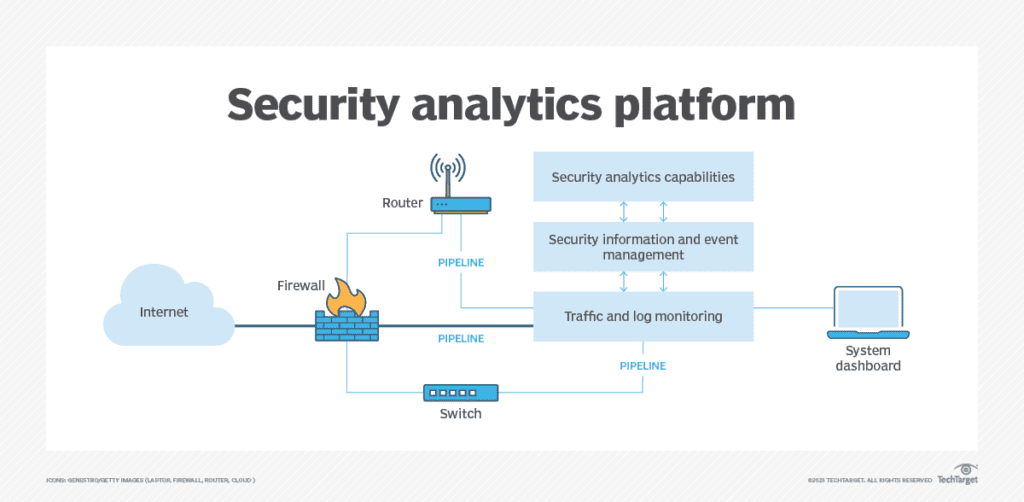Announcements
- Distributed cloud application environments offer tremendous benefits but require radically different application development, IT and business operations. Register for the Leveraging Distributed Cloud Environments virtual summit to learn from top industry experts and solution providers how to make the most of these new environments using containers, microservices, and emerging elements, observability and monitoring tools, and methods for keeping costs manageable.
- Data-centric business models require organizations to manage their underlying data closely with governance and data quality initiatives that meet compliance and data integrity goals. At the Improving Data Management summit, learn from top industry experts and solution providers how to elevate your data management strategies with data governance and quality tools and platforms, the creation of data catalogs and business glossaries, data mapping and classification, workflow management, collaboration, process documentation, profiling, cleansing, and standardization.

When AI Gets Going, the Going Gets Weird
Last week, Microsoft announced its third investment in OpenAI. This time it’s a multi-billion dollar deal, with plans to harness OpenAI’s ChatGPT in Microsoft’s product lines, including Bing.
I’m smiling as I’m typing because I’m still thinking about Bill Schmarzo’s lead in Part 1 of 2 of his Data Science Central post “It’s No Big Deal, but ChatGPT Changes Everything.” In Bill’s blog post, he cited a December 2022 tweet from Thomas H. Ptacek about a ChatGPT answer to Ptacek’s prompt, “write a biblical verse in the style of the King James bible explaining how to remove a peanut butter sandwich from a VCR.”
ChatGPT’s answer to the prompt made me laugh out loud. One example paragraph went as follows: “And the Lord said, “Verily I say unto thee, seek not to put thy peanut butter sandwiches in thy VCR, for it is not a suitable place for such things. Rather, keep thy sandwiches in thy refrigerator or on thy plate, where they belong.”
ChatGPT’s answer was spot on. Ptacek’s prompt triggered a perfect parody of the style of the King James bible, as well as giving a decent response to the question: “Take thy butter knife, and carefully insert it between the sandwich and the VCR, and gently pry them apart….”
Later in his post, Schmarzo pointed out that ChatGPT is different from other chatbots because of the way it uses human feedback to “align a mode trained on a general corpus of text data to that of complex human values.”
We’re going to look back on this new chatbot capability as a watershed moment in the evolution of AI. With ChatGPT, OpenAI has arrived as a means of computing with just enough human in the loop to generate helpful answers.
That’s the good news. The bad news is that lawyers will be entering the picture, if they haven’t already, to add disclaimers and caveats. For ChatGPT to be truly useful, the user has to know enough about the answer and what a suitable answer is, as well as write a suitable series of prompts to get at a suitable answer. Which then may well need thoughtful editing.
As Stellenbosch University’s Software Sustainability Institute’s Kim Martin notes, ChatGPT is really just generating hypotheses with its “answers.” Every answer needs to be fact checked and perhaps elaborated on. Also, who knows if the answer’s useful at all?
Additional prompts are supposed to get the user closer and closer to an answer, but even then, the system doesn’t provide the source(s) for the answer. It’s great if someone with a scientific research method background like Kim can take the output and examine it as a starting point for developing a good answer.
As startling and surprising as ChatGPT’s iterative user prompts and machine responses often are, there’s a nagging feeling that myself, my engineer and ontologist friends all share: We’re bracing ourselves to be buried in content that’s often slightly wrong. Unfortunately, in this world of short-form content nuance and established facts aren’t as possible, popular or valued as they need to be for the signal of substantive online conversation to stay above the noise.
Alan Morrison
Contributor
Contact The DSC Team if you are interested in contributing.
DSC Featured Articles
- Revolutionizing the Supply Chain: Developments in the Warehouse Robotics Industry
January 24, 2023
by Nikita Godse - It’s No Big Deal, but ChatGPT Changes Everything – Part II
January 24, 2023
by Bill Schmarzo - Autonomous Intelligent Systems
January 23, 2023
by ajitjaokar - An Empirical Proof of the Riemann Conjecture
January 21, 2023
by Vincent Granville - Ever-Successful vs. Never-Successful: What the NFL Has to Teach Us About Managing Agile Enterprises, Part I
January 18, 2023
by Howard M. Wiener - A Practical Guide to Using Computer Vision for Business Growth
January 18, 2023
by Roger Brown - DSC Weekly 17 January 2023 – The Creative Spark in AIJ
anuary 17, 2023
by Scott Thompson - Python for Business Analytics: Top Benefits
January 17, 2023
by Ryan Williamson
Picture of the Week

